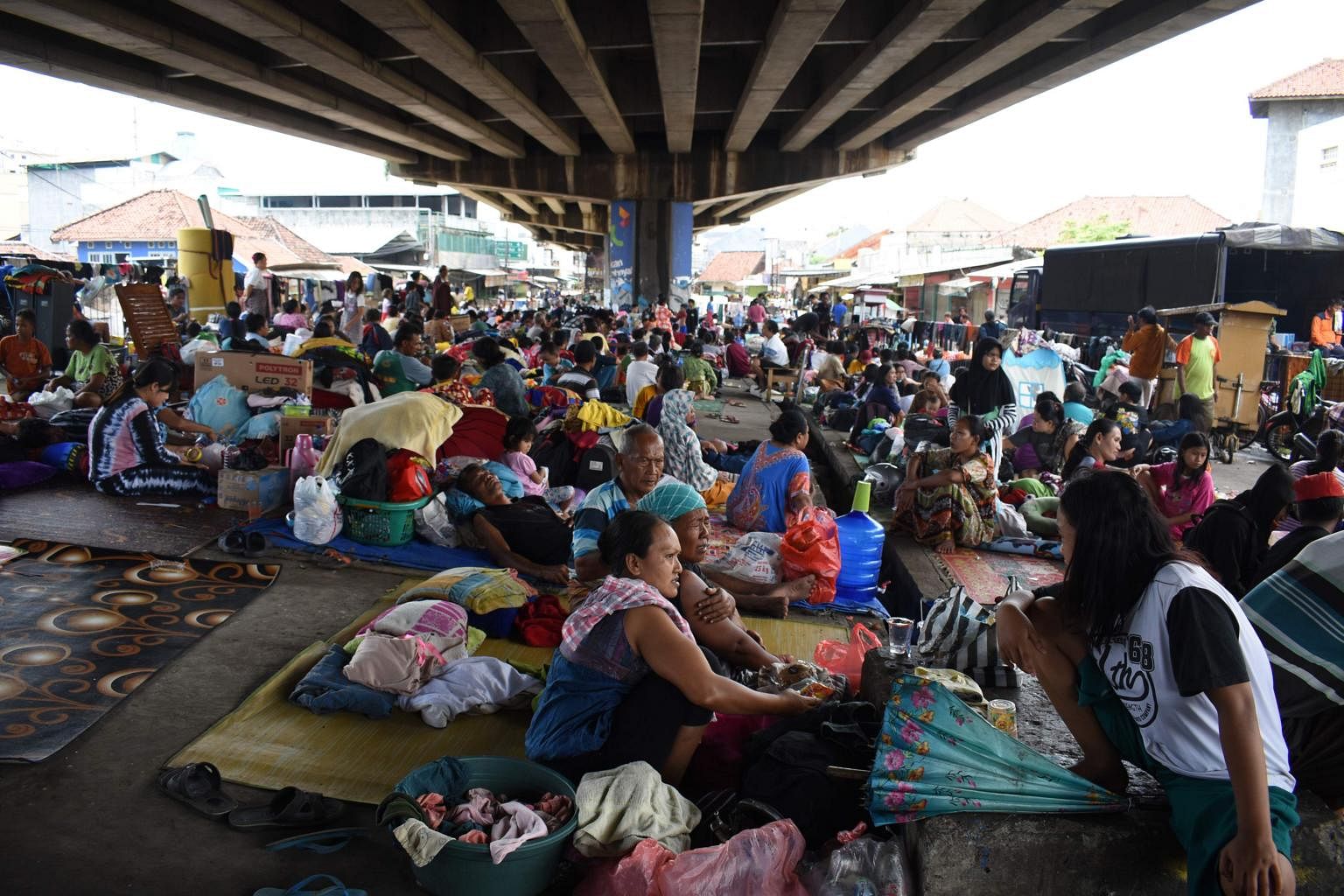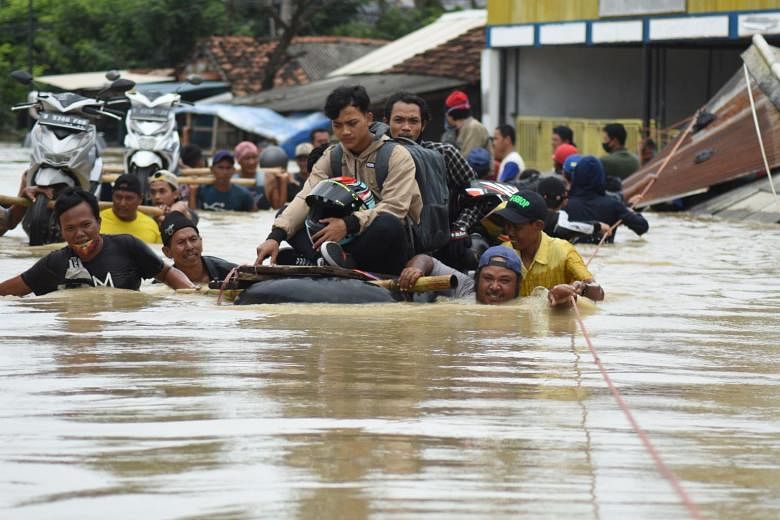JAKARTA - Indonesian rescuers have taken extra measures to protect themselves from being infected with Covid-19 as they battle floods in Jakarta and the surrounding regions.
Several areas in the capital and nearby regions, such as Bekasi and Karawang in neighbouring West Java province, have been inundated even as people in many parts of Java, the country's most populous island, brace themselves for the peak of the rainy season from this week to the end of February.
Fearing a repeat of the spike in Covid-19 infections among disaster relief volunteers which followed the earthquake in West Sulawesi province last month, rescuers are now donning protective equipment, particularly masks, applying decontaminants, maintaining a safe distance from evacuees and taking swab tests after operations.
Extra teams were also deployed to disperse crowds or prevent people from gathering in some densely populated neighbourhoods in Jakarta, while evacuation boats carried fewer rescuers and evacuees, Mr Novry Wullur, a team commander at the National Search and Rescue Agency's special squad, told The Straits Times.
"We are more scared now because of the pandemic compared to previous years," he said. "We don't know if the evacuees are infected by Covid-19."
But the 31-year-old father of one, who also took part in the rescue effort after the quake in Sulawesi, remains undaunted in doing his duty.
"Our willingness (to help) is greater than our fear," said Mr Novry, who has been a rescuer for nearly 14 years.
Official figures show that at least 91 volunteers involved in last month's quake relief efforts had tested positive for Covid-19, likely due to lack of physical distancing at the evacuation shelters.
Dr Joko Murdiyanto, a Yogyakarta-based anaesthesiologist who was in Sulawesi last month, said that the emergence of infection clusters after the earthquake was not surprising, as evacuees, many of whom wore no masks, stayed in packed tents. A 160 sq m tent, built without partition, for instance, might shelter around 50 people.
"We could imagine what happens if there was just one person positive for the virus without showing symptoms there," he said.
Anticipating the worst, Dr Joko's team of doctors from Muhammadiyah Disaster Management Centre took extra precautions. He said: "We even slept wearing masks, as we were trying to be very careful."
A sprawling archipelago with more than 17,000 islands, Indonesia has been hit with at least 66 disasters, including quakes, floods, tornadoes and landslides, since early January to Feb 7, said the National Disaster Management Agency.
The floods in South Kalimantan last month were among the most deadly of recent disasters with 21 people dead.
Indonesia's Meteorology, Climatology and Geophysics Agency says the rainy season has yet to peak in many areas, including Jakarta, West Java, Central Java and East Java.
Regional disaster management agencies have already taken early measures to protect rescuers, disaster relief personnel and residents.

The Disaster Management Agency of Bekasi regency, for example, has allocated 200 rooms to segregate flood victims who have tested positive from those who are healthy.
Mr Sabdo Kurnianto, acting head of the Jakarta Disaster Management Agency, said that tents had been set up in line with health protocols. Special boats had also been provided to evacuate Covid-19 patients, he added.


